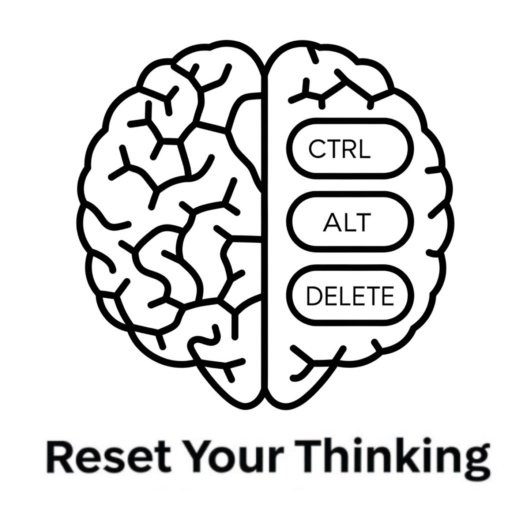“When to Rob a Bank…And 131 More Warped Suggestions”
Authors: Steven D. Levitt and Stephen J. Dubner
Overall Theme: This collection of blog posts and articles applies economic principles and unconventional thinking to a wide array of seemingly unrelated topics, challenging conventional wisdom and exploring the hidden side of everything. The book celebrates curiosity and the power of data-driven analysis. As Dubner puts it: “Levitt likes to say that morality represents the way that people would like the world to work, whereas economics represents the way it actually does work.” The authors use economic frameworks to analyze social phenomena, human behavior, and everyday occurrences.
Key Ideas and Themes:
- Unconventional Application of Economics: The authors explore the economics of seemingly non-economic topics. Examples include analyzing the optimal strategy for terrorists, the economics of names, and the factors driving shrimp consumption. This highlights the book’s core approach: applying economic reasoning to unexpected areas.
- Challenging Conventional Wisdom: The authors frequently question commonly held beliefs and assumptions. For example, they question the environmental benefits of local food (“Do We Really Need a Few Billion Locavores?”) and the effectiveness of security measures.
- The Power of Incentives: The text underscores the importance of incentives in shaping behavior, both positive and negative. This is seen in discussions of gun control (“rewards—I mean big, serious rewards—for tips that help police confiscate illegal guns”), cheating (“If You’re Not Cheating, You’re Not Trying”), and charitable giving (“Non-pecuniary incentives”).
- The Importance of Data: The authors consistently rely on data analysis to support their arguments. This is evident in discussions of bank robbery statistics (“According to the FBI, there are roughly 5,000 bank robberies a year in the U.S.”) and gun violence (“More people die from gun suicides than homicides in the U.S., but gun crime accounts for most of the $100 billion in social costs that Phil Cook and I estimate gun violence imposes each year.”).
- Human Behavior and Irrationality: The book acknowledges the role of irrationality and cognitive biases in decision-making, referencing concepts like “mental accounts” (“the economist Richard Thaler coined the phrase mental accounts to describe the way in which people seem to treat different assets as non-fungible”). and loss aversion (“And a dollar lost playing poker is likewise far more painful.”).
- Crime and Deviance: Several sections explore the economics of crime, including bank robbery (“When to Rob a Bank”), gang behavior (“The Gang Tax”), and gun violence (“What’s the Best Way to Cut Gun Deaths?”).
- Anecdotal and Humorous Style: The writing is often anecdotal and humorous, making complex economic concepts accessible to a wider audience. Personal stories and quirky examples are used to illustrate key points.
- The Environment: The authors frequently address environmental issues, questioning the effectiveness of certain green initiatives and exploring the economic drivers behind environmental problems.
- Addiction: Becker’s rational addiction theory is explored. “When he told me his opinion as to the most addictive good, I was initially surprised and skeptical. On further reflection, I believe he is right.”
Specific Examples and Quotes:
- Terrorism: The excerpt on terrorism suggests strategies for maximizing impact, including multiple coordinated attacks to create widespread fear.
- Names: The discussion of names reveals interesting correlations and patterns, such as the (humorous) observation about the middle name “Wayne” being associated with crime.
- Gas Prices: The authors analyze the economics of gas prices and debunk the idea that a one-day boycott would significantly impact oil companies.
- Kiwi Prices: “A kiwi costs 33 cents Simply because no one prevents Another farm or New York store From entering and selling more.”
- “Captain Steve” on aviation congestion: This section touches on the practical realities and frustrations within the airline industry.
- Advertising: “I’ve lately noticed advertisements showing up in a lot of unlikely venues: stamped onto fresh eggs and printed on airplane barf bags, for instance. But I have to admit there is something particularly creative about affixing a value to time itself, especially if you can capture that value for your own benefit.”
- Robbing a bank: “‘the return on an average bank robbery is, frankly, rubbish’ and that ‘as a profitable occupation, bank robbery leaves a lot to be desired.'”
- Gang Tax: Suggestion to “Tax the n—–s! That’s what I would do if I was the mayor. Don’t put them in jail, but take fifty percent of their money.”
- Self Reporting: “I called a few respected street figures in the New York metro region and asked them to watch the show’s new season. I couldn’t think of a better way to ensure quality control.”
Conclusion: “When to Rob a Bank…And 131 More Warped Suggestions” presents a collection of thought-provoking essays that use economic principles to analyze a diverse range of topics. It challenges readers to think critically about the world around them and to question conventional wisdom.
RYT Podcast is a passion product of Tyler Smith, an EOS® Implementer (more at IssueSolving.com). All Podcasts are derivative works created by AI from publicly available sources. Copyright 2025 All Rights Reserved.

